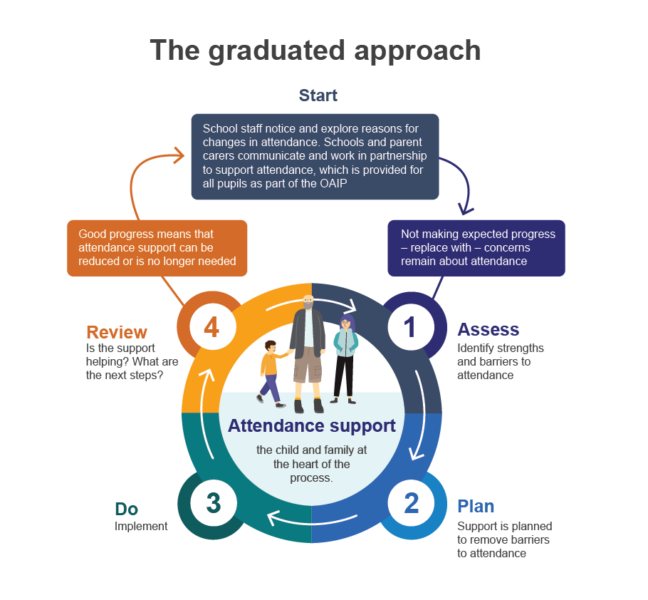When a child or young person starts to have problems attending school its really important that this is recognised early, and support starts to be offered quickly. The more school that a child misses, or the longer they are out of school altogether the more difficult it can be for them to return.
Schools will have a range of things they can try to help support your child, and will use a ‘graduated approach’ when implementing these.
What is a graduated approach?
A graduated approach is a recognised four step process to ensure problems can be identified, support planned – and then implemented, and then a review is carried out as to how well this has worked. The steps are known as assess, plan, do and review.
- Assess: strengths and barriers to attendance are identified.
- Plan: support is planned to remove barriers to attendance.
- Do: the planned support is put in place.
- Review: Is the support helping? What are the next steps? If good progress is being made support may be able to be reduced, and may no longer be needed at all. If there are still concerns about attendance then the cycle needs to start again, with another assessment, new plan, and further review, until good progress is being made.

Taking a graduated approach to EBSA means that difficulties can be identified early, and the right support can be put in place for a pupil.